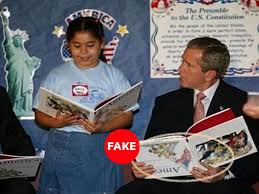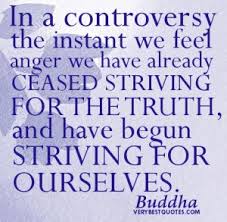Consider for a moment that we’re now actually living in the post-fact era. The signs are right in front of us. President-elect Donald Trump has recently shrugged off a CIA report confirming Russian involvement in influencing the elections via cyber-attack, denouncing it as a scheme cooked up by Democrats to deny him the presidency. Though Trump has chosen to ignore the seriousness of this conundrum, the stakes of which are clear and baffling to seemingly everyone else (in politics and otherwise), he encouraged and praised Comey’s fruitless and suspiciously-timed re-opening of the tired Clinton email controversy, which arguably cost her the election. Though he hinted numerous times that he’d refuse to concede had the election turned in favor of Hillary (who he insists without any evidence, won the popular vote due to massive fraudulent democratic voting) and though he’s just as often called the electoral system corrupt and unreliable, he’s denounced all efforts towards a recount in the key states of Michigan, Wisconsin and Pennsylvania. He has also famously sat out on more than 80% of the intelligence briefings he’s been offered, while asserting that his knowledge and strategy regarding ISIS “trump” those currently in the driver’s seat. Leave out for now that Trump’s narcissistic, sociopathic behavior has alarmed a number of respected professionals, and that his titanic ego, which is damaged by just about any sort of criticism, may very well prevent him from actually catching up on the lifetime of world events and political theory he’s missing and which would allow him to carry out the role of the presidency with some degree of success. For those of us who are alarmed by these facts, now more than ever is the time to arm ourselves – with logic, compassion, and an unwillingness to accept mediocrity.
But in order to arrive at a solution, we have to consider the implications of reality as we know it. Trump is only the top of the pimple. Trump did not invent a society that values capital over education and bigoted, chest-beating machismo over critical thinking; he is a product of it. While we should all be offended and scared when the President-elect refuses intelligence briefings because he is “smart”, or implies that the Russia-damning CIA report is bunk because he doesn’t “believe” Russian hackers meddled with the election, we must do the painful work of using such statements as a mirror, for the work of ego-less self assessment and critical thought is exactly that which prevents the perpetuation of harmful ideas. And unfortunately, these harmful ideas(whose effects could mean the downfall of our species or planet) surround us. As a friend of mine pointed out on Facebook the other day,more Americans believe in angels than in human-caused climate change. Though a belief in angels and a recognition of the real changes happening to our planet are not mutually exclusive, the statistic implies a culture-wide readiness to accept beliefs simply due to tradition and a tendency to shy away from commonly accepted and repeatedly proven facts, figures, and theories.

Before we incredulously ask how this sort of thing happens, or whatever happened to a Confucian love of learning, mustn’t we admit that we ourselves have at least occasionally allowed our beliefs to interfere with our perceptions of reality? A Media Literacy professor of mine once gave the example of a famous photo she had received of George W. Bush reading a children’s book upside down. She forwarded the photo to a number of people before realizing that the picture was in fact photoshopped and that her own bias had blinded her to the fact. Unchecked faith can be a bad thing, as it was for me when in my senior year of college I was in a failing relationship and despite my girlfriend at the time telling me as much, despite the fact of my chronic unhappiness and of the relationship’s dysfunctionality, I convinced her to push on for another few long months.
It should be no surprise that ego can get in the way of the truth. I remember when I first read something that convinced me hell didn’t in fact exist. The feelings of shame and immense relief that followed the acceptance of this revelation were preceded by a flash of rage and near child-like denial. If what I had been taught was wrong, then I was wrong. If I was wrong, might that mean that I wasn’t as smart as I thought I was? Might it mean that more of what I believed wasn’t true?

You won’t catch me saying that faith is a bad thing. For instance, we are able to go about our days in public with relative comfort because of our faith that most people are basically good (or else, too lazy to be a real threat). Indeed, at their best, faith and spirituality can instill an invaluable sense of compassion for our fellow man, as well as the much needed impulse to attempt to see things from another’s perspective, or from the perspective of humanity or even life itself : “He who perceives all beings as the self…never shrinks away from anything, because through his higher consciousness he feels united with all of life,”(Isa Upanishad VII).
But unchecked, faith can lead to harmful, expensive, and nonsensical policy. And this is where we find ourselves. Take for example, laws passed in Indiana and now Texas which require the burial or cremation of fetuses following a miscarriage or abortion. There has of late been a historic wave of anti-LGBT legislation tied as always to “Religious Freedom”. This proposed Florida law that would allow child care agencies to refuse service to individuals based on religious beliefs.And this Tennessee law “would allow those with religious objections to undermine professional standards that apply equally to everyone. For instance, a high school guidance counselor could refuse to counsel a gay teenager, citing their sincerely held religious beliefs”.
It isn’t simply religious-and-faith-based policy that are doing serious damage. Legislation around the country implies that while faith in the military is running strong while faith in education is plummeting. We are living in a country that spends on education only a fraction of what it spends on the military. Teachers are demonized as ineffective benefit-hoarders, school budgets regularly come under fire and schools are in a general trend spending less per student – all while national defense spending enjoys steady growth and bipartisan support. Not that defending our country isn’t important – but in discussing education, we’ve arrived at the crux of the issue. Not only is overall funding for education falling, but education in the humanities is increasingly discouraged, with business-minded politicians and lawmakers seeing liberal arts education as “an expendable, sometimes frivolous luxury.” While it’s true we need more skilled laborers as well as an increase in effective science and math education, the arts and humanities are crucial in teaching youth to assess the deepening political situation as well as how being humans living in the world directly ties them to it. Educators themselves are very often trained in the arts and humanities, and if so if we won’t fund these areas of study, we are saying we don’t value educators, and in turn education.
The election has turned a lot of things on their heads and as an educator, I’m terrified. Loudly bragging about being right has been effectively proven just as good as actually being right. What sort of message this is sending to students we are only beginning to look at. Valuing education may be the first step in returning from our post-fact-society status, towards a society in which electing a misogynistic, egotistical bigot with at best half of an idea of what’s really going on, is not only unconscionable but unimaginable. As Dan McAdams points out, our President-to-be has a “less than cordial relationship with the truth”. Do we truly want the person who represents and leads our country to be one who thinks he knows enough already? It may very well be too late for all of that. But we at least must teach our children to think critically and to challenge what they think they know and what they think is right.
